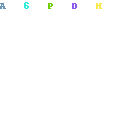But is it fanfic?
Saturday, August 31st, 2002Naomi Chana was blogging about multi-fandom writing not working. She sees similar failures in cross-overs, as well. One might take this, on one level, as the usual murmuring against multi, and, on one level, I did so when I commented that single-fandom authors failed as often (if not oftener) to live up to the spirit of the show as multi-types did.
There is something eternally suspicious about the multi-fandom writer - something that smacks of betrayal or at least jaded decadence. In larger fandoms, similar suspicions cling to those who leave one camp within the fandom for another, whether it be a change of pairing, the frequent switch to slash, or the infrequent switch to what Naomi Chana called compatibility. Or back again.
What she called good fanfic, fanfic with the referential dimension, compatible with the show, is what I call canon fic. To me, it’s just another fanfic genre. Don’t get me wrong - I certainly prefer it to all other fic as much as she does, but I don’t mistake it for the sine qua non of fanfic. I didn’t get into fanfic by reading canon. The first fanfic I ever read was Jane Austen fic, and of it all only one story sticks out in my mind as canon writing. Canon can be hard to find in Trek as well, perhaps because space opera isn’t all that easy to write. Romance is easier, or angst, or smut, depending on your leanings.
What got me into fanfic was reading fanon. The referent of canon writing is the show; fanon writing calls instead on the body of fanfic. In that way, fanon is more truly referential - it is a language that grows, even after the show is off the air. Take, for instance, the J/C fanon that has sprung up to bring an end to the C/7 broadcast relationship. J/C canon pales by comparison.
Those members of the C/7 list who were never in the J/C camp like to point out the baselessness of the whole J/C phenomenon. Those classic J/C episodes, they would say, were bad episodes and unconvincing. Those famous stray J/C moments - well, they never really happened. They were a mass-hallucination.
As a former J/C writer, my response is, why, yes they were, thank you very much. That is the nature of fanon. Seeing things that aren’t there is the greater part of fanfic. I started writing with a rather choppy background of watching the show, but a very strong grounding in fanon. My stories were a dialogue, not with Voyager, but with the J/C Story Index. Maybe they failed as good writing, maybe they failed to capture the spirit of Trek, but they had the referential dimension all right. They referred to fanfic. They were good fanon.
Naomi Chana remarked that multi-fandom writers, while writing good stories, usually failed to write good fanfic (of my canon variety). The other side of the coin is that single-fandom writers, while writing good fanfic (of my fanon variety), frequently fail to write good stories. I think most of us recall a time when a good fanfic excused a poor story; many fans never stop preferring good fanfic to good stories. Those of us with the bad luck to grow old in fandom lose patience with poor stories.
Maybe it’s true that multi-fandom writers prefer, subconsciously, a good story to a good fanfic. After all, how can they tell, hopping from one fandom to another, what a good fanfic is for any particular show? How can they establish the reference, without extensive reading in the fanon, or obsessive watching of the show? Yet if they carry their own universe with them and speak some language of angst only they can understand, that is also a fanfic genre.
Just not my genre. I prefer canon, though I haven’t forgotten fanon.


